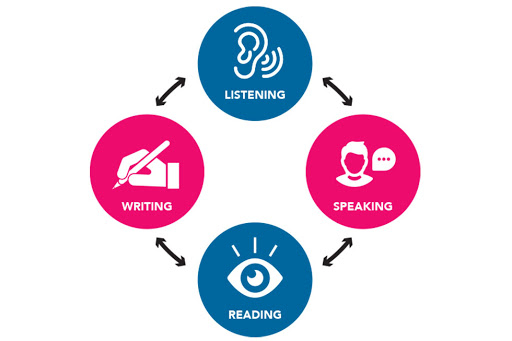As anyone who has taken a new language knows, progress can accelerate rapidly to begin with. We can go from not understanding anything, to really getting to grips with the gist of conversations, finding ways to reply to questions without help and exponentially expanding our vocabulary.
The thrill and excitement of all of this progress can push us into the intermediate level of language proficiency extremely quickly.
Then, just as soon as progress roared ahead, we can begin to feel like we’re slowing down, sometimes to a complete standstill.
This is incredibly frustrating, making us feel as though we’re constantly treading water. We may even feel scared that our proficiency is starting to slip. That we are actually becoming worse at that valuable language we worked so hard to grasp.
If you’ve reached that point with your language story, we have three ways you can push through your plateau and change your perspective on language learning.
Reframe Your Experience
A plateau, as we have said, may seem incredibly frustrating, but we have to consider what this plateau is saying about our ability.
The truth is, a plateau is extremely positive. It’s showing you that you have reached a level of proficiency that is consistent with your current learning environment.
You’re so good at the language, the work you’ve set yourself is no longer helping you to get better. A plateau is paradoxically, a sign of very significant and meaningful progress in your studies.
Better yet, now that you know that a plateau is a sign you’ve reached a significant milestone, it’s time for you to make some changes to your habits, so that you can become an expert at communicating in your chosen language.
Change it Up
Now that we know a plateau means you’ve reached a stable and significant communication level, we need to shake up the routine that’s keeping us there.
Most people who reach an intermediate level of proficiency in their language use some kind of language software or may attend a class. The difference between intermediate and expert language learners is their ability to translate what they learn in the classroom into the real world.
Consider spending at least some time on native texts, books, audiobook, podcasts or music. These media are incredibly helpful in the transition to an even better understanding of language, as they immerse you in the society and culture which they are born from.
You can also use a particular text or type of media as a base line to review your progress. Write down how well you have interpreted a chapter of a book, or the lyrics of a song. Leave this for a couple of weeks and revisit. You can compare your notes with last time to see how much you’re learned!
Reflect on Your Weaknesses
We all have strengths and weaknesses and language is no different. Reflecting on this can often provide us with information on how to elevate our language skills.
What do you find easy?
Is it grammar, vocabulary, speaking or writing?
If you can’t imagine what you struggle with, often eliminating the communication areas you love, will highlight the skills that need some work.
When you’ve established where your areas of weakness are, dedicate an hour of your time on your practice days to strengthening this area.
For example, if you feel that your grammar needs some work, do some research on grammar tools online, set yourself some rules to learn each week and find as many real-world examples as you can to help you stay engaged.
When we choose to work on aspects of language that are practical, we are more likely to remember what we are studying and benefit from it in situations that require us to communicate effectively outside of the classroom.
Conclusion
Plateaus mean progress. You are now proficient enough that what you are learning is no longer challenging you. This is your indicator that you are ready to transition into more challenging and rewarding aspects of communication.
Use native media such as books, songs and podcasts to start applying your language skills to its wonderful cultural artefacts. If you’re struggling to spot your weaknesses, work by process of elimination, removing the skills you feel confident with from the equation and giving more of your practice time to what is left.
Monitor your development, continue to reflect on your areas of weakness and reframe your experience, to transition from mediocre, to master of communication.
Beatrice is a writer at Custom Essay. She writes about language learning.






Discussion about this post